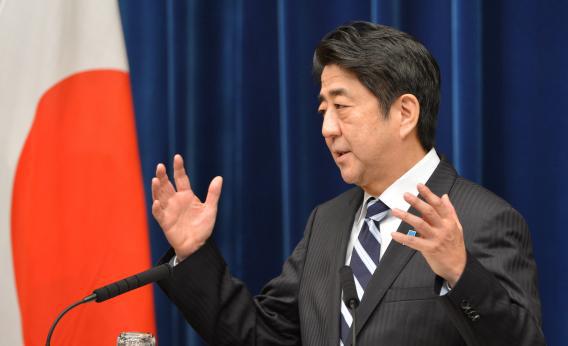Yuka Hayashi’s article about Japan’s top general calling for a big increase in military spending is a valuable reminder that there’s essentially zero tension between the view that Shinzo Abe may pursue the kind of expansionary fiscal and monetary policies that get Japan out of its funk and the view that Abe is basically a retrograde conservative nationalist.
The fact of the matter is that for all the various theoretical arguments bandied about, the big real-world examples of depression-fighting policies mostly come from wars. In fact, Japan itself led the industrialized world out of the Great Depression by abandoning the gold standard and engaging in a military buildup associated with its effort to invade China. Nazi Germany devalued and rearmed. The United States under Franklin Roosevelt got a mini-recovery by ditching the gold standard but then tipped back into recession in 1937 under the force of fiscal and monetary contraction. But our own pre-World War II rearmament got us out.
The problem with this strategy—beyond the obvious one that an actual war in East Asia would get tons of people killed—is that an arms race could lead to a lot of expansion in economic activity without necessarily making people much better off. Here in the United States we clearly could mobilize millions of currently unemployed workers to drastically increase our production of tanks and military aircraft. And the workers themselves would feel a lot happier with jobs and paychecks. But producing extra tanks and bombers is much worse than mobilizing people to produce things people would actually want to use.
